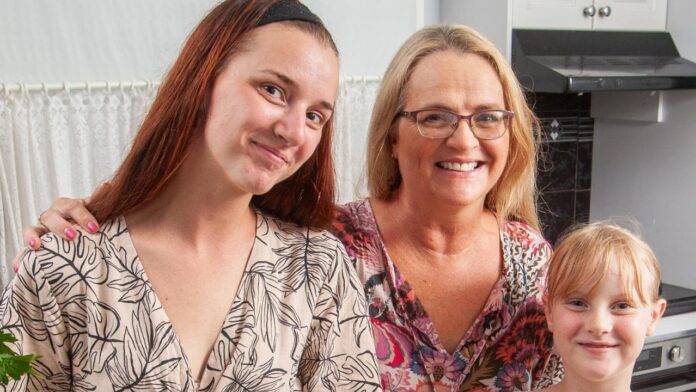[ad_1]
WITH costs rising and people increasingly time-poor, you’d expect the chore of preparing dinner to be one more stress-point for overwhelmed Aussies.
But it’s the opposite.
New research shows the nightly ritual is now a source of comfort for most in these trying times, with 75 per cent finding it enjoyable, and rating it far more favourably than most other household tasks.
And while 71 per cent of Australians are braced to pay more for groceries this year as cost-of-living pressures bite, they won’t let it spoil their appreciation of a good feed: 83 per cent do not expect dinnertime to become more stressful and eight per cent it be less stressful, according to Taste.com.au’s Dinner Decoder 2024 food trends survey of more than 2000 adults.
The majority intend to navigate rising costs in various ways. With the average weekly grocery spend for a family of four $257 per week, 52 per cent will “tighten their belts” and 30 per cent will try sticking to the same budget, while adopting new cost-savvy hacks. Eighty-six per cent plan to cook from home more or the same, with most already doing so six nights a week.
And 46 per cent are ordering takeaway less than five years ago.
The survey was conducted as part of Taste.com.au’s new Savvy Dinner program, in partnership with Coles, to help Aussies slash the cost of the evening meal and keep it a positive experience.
Edith Cowan University Associate Research Dietician Joanne Rees believes many people began to embrace cooking to relieve stress and feel more in control of their finances and health during the pandemic.
START NOW: SEE THE SAVVY DINNER PLAN HERE
“By cooking the food yourself, you know what’s gone into it, she said. “It empowers you to be in control of what you’re actually feeding yourself and your family.”
Dr Rees was buoyed to see health messages getting through: 35 per cent of those surveyed cook more healthily than five years ago, versus 10 per cent who cook less healthily.
Dr Rees said while the act of cooking was a proven de-stresser, eating healthy, home-cooked meals also had a positive effect on gut health which has been shown to impact mental wellbeing. “So, it’s a win-win situation,” she said.
For the minority in the Dinner Decoder survey who did feel stressed about dinner, cost came fourth on the list of negatives behind lack of inspiration, low energy and limited time.
One noted expert in navigating dinner hurdles is mother-of-16 Jeni Bonnell, the chief cook for Australia’s largest family.
While only eight of her immense tribe still live at home in Toowoomba, Qld, keeping everyone well fed remains an impressive feat of planning, especially given Ms Bonnell has just one oven and no microwave or dishwasher in her kitchen.
“We all take turns washing the dishes,” she said. “All of my kids have been on the roster since they were eight. As a parent I think its important all kids know how to do the basics in life.”
With costs ramping up, many now ask Ms Bonell for tips on trimming the household budget, which she shares on social media.
“We have always lived a simple, frugal life – we don’t do a lot of fancy things or go on holidays, we have just concentrated on paying our bills and our children’s education,” she explained. “The rest of life – things like food – we have always had to make sure that was within a budget.”
To save time on busy weeknights, Ms Bonnell spends one day a month preparing basic meals to freeze for her family to reheat and eat in the weeks ahead.
“You can’t go past a savoury mince with some veg in it,” she explained. “Then you can throw in some tinned tomatoes and make it into a spaghetti Bolognese, or you can make a pie out of it with some pastry on the top. You can make a cottage pie. Or tacos.
“So, with one basic thing you have lots of different options.”
Ms Bonell says tomato, chilli or barbecue sauce is her quick way to flavour dishes. And buying frozen vegetables allows her kids to enjoy a nutritious meal without the price tag. She’s also a big believer in buying things in bulk when they are on special to reap long-term savings benefits.
Finance expert and News Corp columnist Scott Pape – aka The Barefoot Investor – is unsurprised that those surveyed planned to increasingly start cooking at home.
“People are feeling the pinch after 13 rate rises,” he said.
“I plan on eating at home a lot more too. Partly because I like cooking but also because it’s cheaper, I know what ingredients I’m using and the fact that I live on a farm in the middle of nowhere helps as well.”
While Mr Pape believes cutting back on restaurant dining, takeaways and impulse buying at the supermarket is an effective way to save money, he emphasises that it shouldn’t come at the expense of all enjoyment.
“I don’t think that you should eat baked beans and sausages every day – unless you’re my children – they would love it!” he said.
“Part of my philosophy is that you should treat yourself and have really nice dinners if that’s your thing. But I don’t think anyone sees a $25 sandwich and juice for lunch as a real treat.”
[ad_2]
Source link


